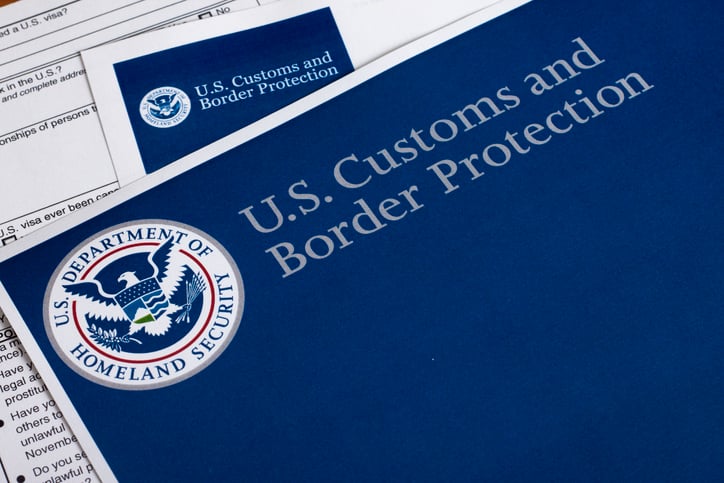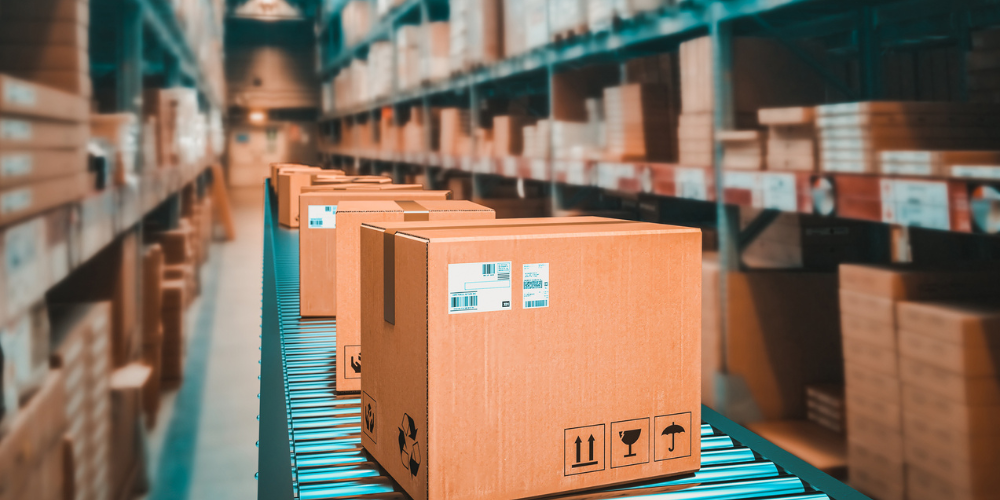Importing goods from other countries is a complex process that requires compliance with various laws and regulations. One of the key players in international trade is the Importer of Record (IOR), which is a legal term used to define the importer responsible for handling obligations related to imported goods.
In this article, we'll discuss what IOR is, the role and responsibility of an IOR, the legal requirements for IORs to follow, and common mistakes to avoid.
What is Importer of Record (IOR)?
An Importer of Record (IOR) is a legal entity or person responsible for fulfilling all customs obligations related to the importation of goods into a country. In other words, an IOR is responsible for ensuring compliance with all relevant regulations, including f iling the necessary paperwork with customs, paying taxes, and ensuring that the imported goods meet local standards and regulations.
Why is an IOR necessary in international trade?
When importing goods from other countries, it is essential to have a clear and defined Importer of Record to ensure that all legal requirements are met. This is especially important when importing high-value goods that are subject to customs duties, taxes, and regulatory requirements. Without a defined IOR logistics, it may be difficult to determine who is responsible for paying these fees and fulfilling other obligations related to the importation of goods.
Who can act as an IOR?
An IOR can be any legal entity or person located in the importing country with a valid importer ID number. This can include individuals, businesses, or third-party logistics providers (3PLs). However, it is important to note that the IOR must be able to fulfill all obligations related to the importation of goods and comply with all relevant regulations.
How was the role of Importer of Record created and what are its responsibilities?
The role of Importer of Record came into existence through the implementation of the Customs Modernization Act of 1993, a legislative measure enacted by Customs and Border Protection (CBP) with the primary objectives of strengthening the security of imported goods and ensuring the collection of applicable duties. This role was established to promote regulatory compliance and accuracy in the valuation, classification, and duty assessment of imported items.
The Importer of Record bears important responsibilities within the import process. Firstly, they are accountable for ensuring that all imported goods are accurately documented and valued. Moreover, it is the Importer of Record's duty to pay any duties, tariffs, or fees associated with the imported merchandise and to guarantee adherence to relevant regulations and statutes governing the importation process.
In addition to these core duties, the Importer of Record is entrusted with managing documentation requirements and may be required to appoint a valid Power of Attorney (POA) in specific circumstances. Furthermore, they are responsible for overseeing the overall accountability of imported goods. To optimize operational efficiency and minimize risks of non-compliance, the Importer of Record has the option to delegate some or all of these responsibilities to entities within the service supply chain, thus fostering a collaborative approach that can result in cost savings for all parties involved.
The Role and Responsibility of an IOR
The role and responsibility of an IOR are significant, as they are responsible for ensuring that all obligations related to the importation of goods are met. This includes tasks such as filing the necessary paperwork with customs, paying taxes, and ensuring that the imported goods meet local standards and regulations.
Specifically, an IOR must have a thorough understanding of the regulations and laws pertaining to the importation process. Compliance with these regulations is crucial to avoid any legal ramifications. Failure to comply with local regulations can result in fines, penalties, or even legal action. It is, therefore, imperative for IORs to navigate the complex landscape of import regulations and laws, ensuring that all obligations are fulfilled.
Moreover, an IOR is responsible for accurately classifying the imported products, valuing them correctly, and paying the required fees, duties, and taxes. This meticulous attention to detail is essential to ensure accurate financial reporting and compliance with customs requirements.
Additionally, completing all necessary documentation and paperwork is a vital responsibility of an IOR. This includes providing accurate information about the imported goods, ensuring that all required forms are filled out correctly, and submitting them promptly. By adhering to these administrative tasks, an IOR ensures the smooth flow of goods through customs and avoids any unnecessary delays or complications.
What are the documentation responsibilities of an IOR?
An Importer of Record (IOR) bears the crucial responsibility of ensuring compliance with all applicable regulations and laws when it comes to importing goods. This includes filing the necessary paperwork with customs, paying taxes, and ensuring that the imported goods meet local standards and regulations. The documentation responsibilities of an IOR are extensive and require meticulous attention to detail.
To ensure compliance, an IOR must handle various documentation, leaving no room for oversight. This might encompass tasks such as product classification, import/export licenses, permits, fees/taxes/duties paperwork, and Power of Attorney (POA) declarations, among others. Each of these documents plays a vital role in the smooth and lawful importation process.
Understanding the significance of compliance, IORs must possess a comprehensive knowledge of the regulations and laws associated with importing goods into the country. Any failure to comply with these regulations can have severe consequences, including fines, penalties, or even legal action. Therefore, it is essential for IORs to diligently manage the required documentation, ensuring accuracy and adherence to the necessary procedures.
Understanding the Legal Requirements for IORs
Becoming an IOR requires compliance with various legal requirements, which can vary depending on the importing country and the type of goods being imported. Some of the legal requirements for becoming an IOR include:
- Obtaining an Importer ID number
- Registering with the local customs authority
- Filing the necessary paperwork with customs
- Ensuring compliance with local regulations and laws
- Keeping accurate records of all imported goods
In addition to these legal requirements, IORs must also be aware of the obligations imposed by various trade agreements. For example, under the U.S.-Mexico-Canada Agreement (USMCA), formerly North American Free Trade Agreement (NAFTA), IORs are required to complete a NAFTA Certificate of Origin for eligible goods.
Common Mistakes to Avoid when Becoming an Importer of Record
Becoming an IOR can be a complex process, and there are several common mistakes that should be avoided. These include:
- Lack of understanding of IOR meaning: It is essential for IORs to have a thorough understanding of their responsibilities and obligations related to importing goods. This includes compliance with local regulations and laws, filing the necessary paperwork, and paying taxes and duties. A lack of understanding of these responsibilities can result in non-compliance, which can have severe consequences.
- Incorrectly filling out necessary paperwork: Filing the necessary paperwork with customs is an essential part of the importation process. However, incorrect or incomplete paperwork can result in delays or even the seizure of goods. IORs should ensure that all necessary paperwork is filled out accurately and completely.
- Non-compliance with local regulations and laws: Compliance with local regulations and laws is of utmost importance for IORs. Failure to comply with these regulations can result in fines, penalties, or even legal action. It is, therefore, important for IORs to have a thorough understanding of the regulations and laws related to importing goods into the country.
What does an Importer of Record (IOR) Service do?
Importer of Record services are designed to ensure a smooth customs clearance process and minimize potential risks. By entrusting this task to a knowledgeable professional, businesses can save both time and money while experiencing peace of mind.
The role of an importer of record is crucial in facilitating efficient cross-border trade. They take responsibility for ensuring the successful entry of goods into a country and handling all necessary customs procedures and documentation. This includes complying with various regulations, paying appropriate duties and taxes, and providing accurate information about imported goods.
The complexity of customs clearance can vary from one country to another, making it essential to seek expert advice if you are unfamiliar with the process. Importer of Record services offer just that - a team of experts who are well-versed in the regulations and requirements of different jurisdictions. They possess the knowledge and experience to navigate through intricate procedures, which can often involve classifications, valuation, and documentation specific to each country.
By partnering with an importer of record, businesses can streamline their global supply chain operations. These services ensure that goods clear customs smoothly and efficiently, minimizing delays and avoiding potential penalties or fines. With their expertise, importers of record help businesses comply with all legal and regulatory requirements, allowing for a hassle-free movement of goods across international borders.
Moreover, outsourcing the role of the importer of record allows businesses to focus on their core competencies. Instead of allocating resources and time to navigate customs processes, companies can rely on professionals who specialize in these tasks. This not only saves valuable internal resources but also ensures that the customs clearance process is handled accurately and efficiently.
What are the benefits of using an IOR Service Provider?
Using an Importer of Record service can offer several advantages for businesses engaging in international shipping. The benefits of utilizing such a service are as follows:
1. Streamlined Shipping: An Importer of Record service can simplify the complexities of international shipping. By leveraging their expertise and experience, these services can ensure that your products are efficiently delivered to your customers in a timely manner.
2. Customs Compliance: With varying customs laws and regulations across different countries, it can be challenging to navigate the complexities of customs clearance. By partnering with an Importer of Record service, you can benefit from their in-depth understanding of local regulations. This helps you remain compliant and avoid potential delays, fines, and penalties.
3. Reduced Administration: Managing the customs clearance process can be time-consuming, especially if you are unfamiliar with the procedures involved. By utilizing an Importer of Record service, you can offload this burden and allocate your time and resources to other core business activities that contribute to your company's growth.
4. Cost-Effectiveness: Importer of Record services often have established networks and relationships with customs authorities and shipping partners. This enables them to develop an import management process that is optimized for cost-effectiveness. By leveraging their connections, these services can help you streamline import processes, potentially leading to cost savings for your business.
Overall, using an Importer of Record service can provide streamlined shipping, ensure customs compliance, reduce administrative tasks, and offer cost-effective solutions for businesses involved in international trade.
Can a Shipper be the Importer of Record?
Yes, the shipper can indeed assume the role of the Importer of Record. While the typical scenario involves the owner or purchaser of the goods serving as the IOR, there are no legal restrictions that prevent the shipper from taking on this responsibility. By doing so, the shipper would assume the standard duties and obligations associated with the role, such as filing the necessary documentation, paying applicable duties and taxes, and abiding by the local import regulations in place.
What are the Risks for Importers of Record?
"Importers of Record face several risks that can significantly impact their business operations when importing goods to a foreign country. These risks include:
1. Audit and Investigation: Importers of Record are susceptible to audits and investigations by customs authorities at any time. Non-compliance with import regulations or failure to provide accurate documentation can trigger these reviews, potentially leading to delays in shipments, additional scrutiny, or even legal penalties.
2. Enforced Compliance Measures: In response to non-compliance, customs authorities may impose enforced compliance measures on Importers of Record. These measures can include mandatory participation in self-auditing programs, where importers must ensure compliance with import regulations through internal auditing processes. Additionally, importers may be required to provide staff training to ensure ongoing adherence to import laws and regulations.
3. Penalties: Importers of Record may face severe financial penalties for breaking the rules. These penalties can amount to $100,000 or more, significantly impacting the importer's financial standing. The financial burden of penalties can disrupt business operations, affect cash flow, and potentially even jeopardize the entire business.
4. Business Disruption: The risks associated with non-compliance and penalties can throw Importers of Record off course. The disruption caused by audits, investigations, and compliance measures can lead to delays in shipments, increased costs, and damage to the importer's reputation. Such disruptions can hinder the importer's ability to operate effectively in the international market, potentially impacting their competitiveness and overall success.
To proactively manage these risks, Importers of Record should ensure compliance with all necessary regulations and statutes. This includes employing compliance tools and a self-auditing program, as well as training staff sufficiently. Executive-level management must recognize and support these compliance efforts to foster a culture of adherence to legal standards. Participation in the Importer Self-Assessment Program, though voluntary, is highly recommended by customs authorities as it demonstrates a commitment to compliance.
Furthermore, it is important to be aware that some government agencies, such as the Environmental Protection Agency, the Food and Drug Administration, and the Consumer Product Safety Commission, have the authority to deny entry of imports that pose potential threats to the general welfare of the U.S. In such cases, Customs and Border Protection (CBP) does not assume responsibility for the importing of goods but may oversee the export or destruction of non-compliant goods.
By understanding and navigating the complex landscape of import regulations and maintaining robust compliance measures, businesses can minimize the potential risks associated with importing goods to foreign countries. Choosing a reliable Importer of Record who is well-versed in these matters is crucial to ensuring smooth business operations and long-term success in international trade.
Additional Terms that may be Useful
Who is the Exporter in a Supply Chain?
In the supply chain, the exporter refers to an individual or entity with the necessary authorization from customs and government authorities to facilitate the transportation of goods from one country to another. The exporter's role is not necessarily limited to being the seller of the goods; it could also include organizations that act on behalf of the original seller.
Who is the Consignee in the supply chain?
The consignee in the supply chain refers to the recipient or receiver of a shipment, typically the rightful owner of the goods. Once the goods have successfully cleared customs, the consignee assumes ownership and takes possession of the items. In most import/export transactions, the consignee is responsible for paying the necessary import duties and taxes. The consignee can be an individual buyer who ordered goods from a foreign business, or it can be another commercial entity. Furthermore, if a business has imported its own goods for various purposes such as internal use, storage, or future distribution, it acts as both the importer and the consignee.
Who is the Beneficial Cargo Owner (BCO) in the Supply Chain?
The Beneficial Cargo Owner (BCO) is a term used in the shipping and logistics industry to refer to the party that owns the cargo or the goods being transported. The BCO is the entity that will ultimately benefit from the shipment reaching its destination. In a supply chain, the BCO is often the importer or consignee of the goods. They may be the actual owner of the goods or have a financial interest in them.
It's important to note that the BCO is distinct from other parties involved in the shipping process, such as the carrier, freight forwarder, or logistics provider. The BCO is the party with a vested interest in the cargo and is responsible for coordinating and managing the shipment to ensure it reaches its intended destination.
Understanding the Roles: Importer of Record (IOR) vs. Exporter of Record (EOR)
When diving into international trade, it's critical to understand the roles of an Importer of Record (IOR) and an Exporter of Record (EOR). While both positions hold significant responsibilities in the movement of goods across borders, they cater to different aspects of the logistics chain.
Importer of Record (IOR):
The IOR is tasked with ensuring that goods entering a country comply with all of the local laws and regulations. This role includes:
- Calculating and paying the appropriate taxes and duties.
- Completing necessary import documentation.
- Ensuring goods are correctly classified according to the local customs regulations.
Exporter of Record (EOR):
Conversely, the EOR manages the responsibilities for goods exiting a country. Key duties include:
- Ensuring that export transactions adhere to the national laws of the exporting country.
- Preparing and filing all required documentation and clearance procedures.
- Passing security checks and inspections before departure.
Key Differences:
- Direction of Goods: The IOR focuses on imports and compliance with the regulations of the country receiving the goods. In contrast, the EOR deals with exports and adherence to the regulations of the country sending the goods.
- Regulatory Compliance: Both roles require understanding and application of respective local laws, but the EOR must also often deal with additional export controls and sanctions which can vary greatly depending on the product and destination.
Get Shipping Help
Shipping products between countries can be a complex process that requires expertise and knowledge of the various regulations and laws in each country. Common obstacles associated with shipping complexity can include navigating customs clearance, complying with local regulations and laws, and ensuring that products are transported in a timely and cost-effective manner. An experienced logistics consultant can help you overcome these obstacles and ensure that your products are shipped safely and efficiently. At Visigistics, we have a team of experienced logistics professionals who can assist you with all your shipping needs. Whether you need help with customs clearance, compliance, or transportation, we can provide the expertise and guidance you need to succeed in the global marketplace. Don't let shipping complexity hold you back- talk to Visigistics today to learn how we can help you achieve your international shipping goals.
Frequently Asked Questions:
How can an entity in the service parts supply chain streamline the role of the Importer of Record for effective global supply chain management?
To effectively streamline the role of the Importer of Record within a global service parts supply chain, an entity can partner with a specialized logistics provider, like Visigistics. By doing so, the logistics provider will handle the responsibilities associated with being the Importer of Record, encompassing all duties from custom compliance to the final delivery of goods to the customer. This delegation not only ensures adherence to all pertinent regulations, thereby reducing the likelihood of compliance breaches, but also leads to cost efficiencies for all stakeholders involved in the supply chain. This approach allows businesses to focus more on core operations without compromising on efficiency or compliance in their supply chain processes.
How was the role of Importer of Record created and what are the responsibilities associated with it?
The creation of the Importer of Record role is rooted in the enactment of the Customs Modernization Act in 1993. This role was established by the U.S. Customs and Border Protection (CBP) to enhance the security of importing processes, particularly to counter terrorism and ensure the proper collection of import duties. The responsibilities of an Importer of Record involve legal obligations to determine the value, classification, and duty calculations of imported goods.
Moreover, an Importer of Record must manage and maintain all necessary documentation that supports these initial evaluations and assessments. One critical requirement is that the Importer of Record must designate a Power of Attorney (POA) if they are not physically present at the import location. This POA is empowered to represent and act on behalf of the Importer of Record, managing the responsibilities related to the imported goods under CBP guidelines, which demand diligence and adherence to defined standards of care during the importation process.
Why is it necessary for high-valued goods to have a local business or a registered entity act as the importer of record for customs?
Importing high-value goods necessitates the involvement of a local business or a registered entity to act as the importer of record due to several strategic benefits. Primarily, this arrangement optimizes efficiency and cost-effectiveness. Local businesses or registered entities are more familiar with their domestic market regulations, facilitating smoother and quicker customs clearance than if the import were handled from abroad.
Furthermore, local importers of record can leverage established relationships with customs authorities, mitigating the risks of delays or compliance issues that can be costly for high-value products. Utilizing a single importer of record across multiple countries simplifies the complexity of international logistics, offering businesses a centralized, reliable point of contact for managing imports globally. This streamlined approach not only saves time but also significantly reduces the potential for regulatory complications or financial overheads associated with global shipping and customs processes.





